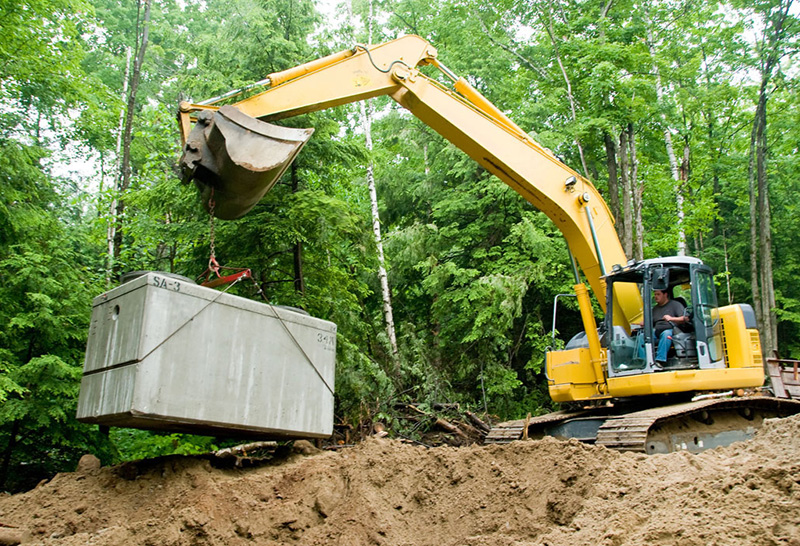For homeowners in Northern Virginia, understanding the permits and regulations governing septic systems is necessary for any installation, repair, or major alteration. Virginia, through the Department of Health (VDH) and local county health departments, has strict guidelines to ensure public health and environmental protection. Navigating these requirements properly is vital and underscores the importance of working with licensed professionals like Great Falls Septic Service, who are familiar with Virginia’s specific mandates.
Understanding Local Health Department Requirements in Virginia
In Virginia, the local health departments (e.g., Fairfax County Health Department, Loudoun County Health Department, Prince William County Health Department, etc.) are the primary authorities for approving and regulating onsite sewage disposal systems. Their requirements cover various aspects:
1. Site & Soil Evaluations (Perk Test):
- Before any new septic system can be installed in Virginia, a thorough site and soil evaluation (often called a “perk test” or soil morphology report) must be conducted by a VDH-certified professional (e.g., a Licensed Onsite Soil Evaluator – LOSE or Professional Engineer – PE).
- This evaluation determines if the soil is suitable for a drain field, its absorption rate, and the appropriate type and size of septic system for your property based on soil conditions, lot size, and estimated water usage.
2. Construction Permits:
- Once a suitable site is identified and the system design is approved, a construction permit must be obtained from the local health department. This permit outlines the specific design and installation requirements for your septic system.
- Any significant modification, repair, or expansion of an existing system also typically requires a permit. This ensures that all work complies with current health codes and environmental standards in Virginia.
3. Inspections During Construction:
- The local health department will perform various inspections during the septic system installation process. These typically include:
- Excavation Inspection: To ensure the proper depth and dimensions of the tank and drain field.
- Pipe Installation Inspection: To verify correct grading and connections.
- Final Inspection: To ensure the entire system is installed according to the approved plan before it’s covered.
- These inspections are critical to verify proper installation and prevent future issues for Northern Virginia homeowners.
4. System Design & Type:
- Virginia regulations dictate the type of septic system permitted based on soil conditions, groundwater levels, and lot size. This might mean a conventional gravity system, a pump system, an alternative treatment unit (e.g., aerobic system), or a mound system. Your design must adhere to these VDH guidelines.
5. Setback Requirements:
- Strict setback requirements are in place to ensure septic components are a safe distance from wells, property lines, buildings, surface waters, and other structures to prevent contamination. These distances vary by county and specific site conditions within Virginia.
6. Maintenance Requirements:
- Some alternative septic systems (ATUs) or larger commercial systems in Virginia may have specific maintenance contracts or monitoring requirements mandated by the VDH to ensure continuous proper function. Even for conventional systems, regular pumping and inspection are strongly recommended by the VDH.
Importance of Working with Licensed Professionals Familiar with Regulations
Navigating Virginia’s septic system regulations can be complex for a homeowner. This is precisely why working with licensed professionals like Great Falls Septic Service is not just a recommendation but often a legal necessity:
- Expertise in Local Codes: Licensed septic contractors and soil evaluators in Northern Virginia are very familiar with the specific codes, permitting processes, and geological nuances of the region and your particular county. We know what’s required and how to ensure compliance.
- Proper Design and Installation: Our professionals ensure your system is properly designed and installed according to VDH standards and engineered specifications, maximizing its lifespan and efficiency. Improper installation is a leading cause of premature system failure.
- Permit Application & Expediency: We can help you navigate the permit application process, which can be daunting for homeowners, ensuring all necessary documentation is submitted correctly and efficiently.
- Avoiding Costly Mistakes: Attempting DIY septic work without permits or proper knowledge can lead to severe fines, requirements to dismantle and reinstall, environmental contamination, and significant health risks.
- Guaranteed Work: Licensed contractors carry insurance and stand by their work, providing peace of mind.
- Identifying Red Flags for Buyers/Sellers: For real estate transactions, a licensed professional conducting the septic inspection knows exactly what to look for regarding code compliance and system health.
Ensuring Your Septic System is Compliant and Cared For
For any septic system work on your Northern Virginia property, from a new installation to a significant repair or even just a routine inspection, always verify that your chosen professional is properly licensed by the Virginia Department of Professional and Occupational Regulation (DPOR) and has a strong track record of adherence to VDH guidelines. Investing in professional expertise ensures your septic system is a safe, compliant, and long-lasting asset to your home. Contact Great Falls Septic Service for all your septic needs!


